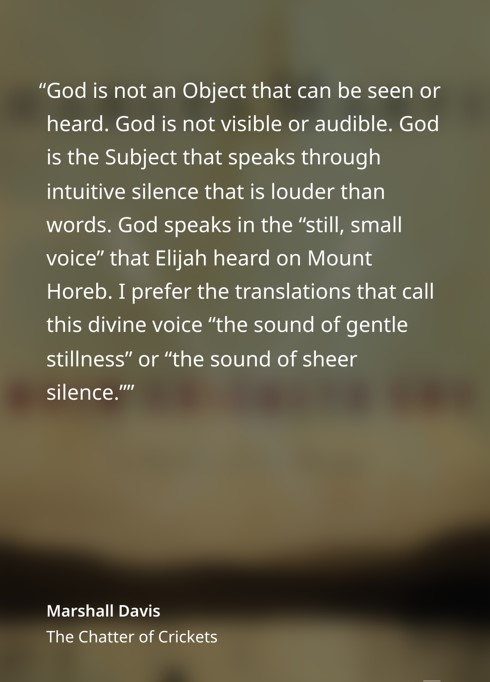Like A Prayer
Life Is A Mystery
It Isn't The Process Of Prayer That’s The Problem, It’s The Way It’s Framed

Like A Prayer - The Song
The Madonna song "Like A Prayer" was released exactly 30 years ago this week, at time of writing, and it achieved 3 interconnected objectives:
- It caused major controversy [especially within the Roman Catholic church]
- It became a major commercial success
- It boosted her career after the critical and commercial failure of her last 2 film projects
Madonna described "Like A Prayer" as about a passionate young girl "so in love with God that it is almost as though He were the male figure in her life."
Why Don't We Like A Prayer?
Regardless of what we feel about Madonna or her song the topic of prayer often arouses strong reactions.
Usually, it is something that we associate with organised religion and for most of us this is not on our current radar.
It is also seen by many of us as a sign of weakness or desperation to resort to prayer. We live in a culture of self sufficiency. We are very much a "do-it-yourself" people.
Unless you have been through a recovery programme of one kind or another, turning to prayer as a last resort is seen and felt as a desperate sign of pathetic weakness.
Why I didn't like a prayer
For me prayer has associations with my childhood and the strict and obsessive religious environment in which I was raised.
I have many memories of the unnatural sounding language and the formulaic repetitions.
The overall sense it conveyed to me was of good big God up there and bad little me, and all the other despicable miserable sinners, down here.
The way these prayers were structured it always gave me the impression that unless you spoke in the right "code" - which had to include lots of biblical references - then God couldn't or wouldn't hear let alone respond.
These days I can find a beauty and a meaning in the structured litany and liturgy of the Anglican Church in the Christian tradition, and the vows, invocations and expressions of gratitude and compassion of Buddhism.
But in my early adult life I rejected it all and determined to find my own way.
When Is A Prayer Not Like A Prayer?
The modern origins of the word prayer come from the medieval French word "preiere" or "prière" which means to make an intense request, or an appeal to a higher authority about a specific matter.
The french words were based on the Latin "precaria", "precarius" or "precari" all of which have modern meanings "to petition", to be "given as a favour" or "to ask, beg or make an intense request".
In all interpretations, from an etymological perspective, it means that:
Framing
For the modern person who is not a practitioner or devotee of a faith tradition this framing of prayer does not resonate and likely provokes the adverse reactions I referred to above.
Framing is all about the words we use to describes things and the feeling those words evoke within us.
So if you change your language you change how you feel about the thing that your words describe.
Reframing "PRAYER" as "COMMUNION"
I propose that we reframe the word Prayer with the word Communion as the noun, and the word Communing as the verb.
The word Communion comes from the medieval French word "comunion" meaning "participation in something"; "that which is common to all"; and "fellowship, mutual participation, a sharing".
This in turn is derived from the Latin "com" meaning "with or together" and "unus" meaning "oneness or union".
So when is a prayer not like a prayer?
When it's a communion.
What Is The Context Of Communion?
I have found it helpful to approach this outside of the context of any specific faith tradition. But if you are in a faith tradition that's fine and we are not in argument.
Before I move to directly address the context of communion I would like to direct you to an earlier article on "Living With Your Thoughts" where I proposed a simple model for understanding and developing a good working relationship with your mind and then a section on understanding your selves.
In this article and elsewhere I describe the higher self as your hardwired portal to the universe and everything "out there" - of Consciousness – or The Energy Of Life or the dimension of spirituality.
This context is important because communion with the different levels of your mind and between your many selves unites them together in a oneness that is Consciousness.
Buddhist teacher Zuisei Goddard expresses this rather well:
"Often, prayer is associated with a god or gods, as an act of worship, reverence, supplication.
I think of it more broadly and more simply as being in relationship with ourselves, first and foremost, but also with the sacred, with reality, with awakening, with the divine within.
So, praying, to me, is to be in relationship with a deeper, larger, more connected, more integral part of our being."
This reframed understanding of prayer is expansive and holistic.
Ok, now to address the question:
I see communion as a communing with the various elements or levels of your Consciousness.
Many of the practices shared on this site involve that process:
- Dealing With Hard Times
- Positive Self Talk
- Self Dialogue
- The Practice Of Deep Acceptance
- The Practice Of Gratitude
- Giving Thanks In Everything
It also includes communing with the natural world in all of its multitude of various and wonderful manifestations.
One of the most powerful ways of communing with Consciousness is just to be present.
How to Commune?
As with any close human relationship sometimes a companionable silence is sufficient.
Other times when you feel the need to say something, share something or ask something - just do it and simply direct your communication to that part of Consciousness you want to address.
This maybe "within yourself" as outlined in some of practices above, or you may want to commune with Consciousness "out there" but either way there is no set formula, there are no magic words, just do it!
You don't have to use the "god word" if it bothers you, just talk to "my higher self" - or you don't need a word at all to name Consciousness just do it.
As with all good human communication between friends, the best communication is spontaneous, authentic and spoken from the heart.
I appreciate that to some readers this may all sound rather odd - but all I can say is that the intentional communication with as much of Consciousness as you are aware of is a deeply enriching and transformative approach to living, and eventually you will find that.
The Wise Advocate - Helping You Achieve The Very Best Outcome
Next Article: Fear Of Missing Out - "I'll Have What She's Having!"
Return from "Like A Prayer" to: Walking The Talk
LATEST ARTICLES
Inner Mastery For Outer Impact - Mental Clarity For Effective Action
 Insights only matter if they translate into consistent action. In a world crowded with quick fixes and motivational soundbites, the theme “Inner Mastery for Outer Impact” calls us to something more e…
Insights only matter if they translate into consistent action. In a world crowded with quick fixes and motivational soundbites, the theme “Inner Mastery for Outer Impact” calls us to something more e…The Wise Advocate - Helping You Achieve The Very Best Outcome
 The focus of your attention in critical moments of choice either builds or restricts your capacity for achieving the best outcome. When we talk of 'The Wise Advocate' its easy to think of the consigl…
The focus of your attention in critical moments of choice either builds or restricts your capacity for achieving the best outcome. When we talk of 'The Wise Advocate' its easy to think of the consigl…Trust The Process - Beyond The Cliche
 The phrase "trust the process" has become a cliche, the woo-woo mantra of the "self help" industry. Those three little words feel like they ought to mean something useful but hidden behind them are a…
The phrase "trust the process" has become a cliche, the woo-woo mantra of the "self help" industry. Those three little words feel like they ought to mean something useful but hidden behind them are a…The Dopamine Delusion - Why Anticipation Beats Achievement
 The thrill we feel is not in the having, but in the wanting. The more we have, the more we want. The more things we acquire and the easier things get for us, the more discontent we feel. The more spo…
The thrill we feel is not in the having, but in the wanting. The more we have, the more we want. The more things we acquire and the easier things get for us, the more discontent we feel. The more spo…The Power Of Silence Is Experienced In Your Use Of Language
 Practise the "Beneficial Neurological Delay" for optimal comprehension. The power of silence is experienced in your use of language, specifically: - How you formulate the words you use to think and in…
Practise the "Beneficial Neurological Delay" for optimal comprehension. The power of silence is experienced in your use of language, specifically: - How you formulate the words you use to think and in…Dealing With Setbacks - 5 Questions To Help You Face Discomfort
 How To Counter The Cognitive Shock Of A Setback. Setbacks challenge your instinctual desire for control and comfort, making it unnatural to respond with calm or acceptance. The reason for these instin…
How To Counter The Cognitive Shock Of A Setback. Setbacks challenge your instinctual desire for control and comfort, making it unnatural to respond with calm or acceptance. The reason for these instin…Why Praxis Is The Key To Living A Successful And Stress Free Life
 Praxis Is The Process Of Taking Informed Action To take informed action you need to be prepared with information, knowledge, education and insight. Informed action is objective action that: - Seeks to…
Praxis Is The Process Of Taking Informed Action To take informed action you need to be prepared with information, knowledge, education and insight. Informed action is objective action that: - Seeks to…The Power Of Working With The Front Line
 How To Exercise Influence Without Authority In Complex Systems I first discovered the power of working with the frontline when I was working as a business troubleshooter on large projects, programmes…
How To Exercise Influence Without Authority In Complex Systems I first discovered the power of working with the frontline when I was working as a business troubleshooter on large projects, programmes…Dealing With Distraction - Learning How To Live With Your "Attention Autopilot"
 Living With Your Attention Autopilot The good news about your Attention Autopilot is that it will keep you safe. It is continuously scanning your immediate environment for threats. The bad news is tha…
Living With Your Attention Autopilot The good news about your Attention Autopilot is that it will keep you safe. It is continuously scanning your immediate environment for threats. The bad news is tha…The Time Of Your Life - Recognising Moments Of Alignment For Action
 How will you recognise your moment of alignment for action? In this article I want to look at our relationship with time and in the context of the two main themes of this site, firstly as a thinking s…
How will you recognise your moment of alignment for action? In this article I want to look at our relationship with time and in the context of the two main themes of this site, firstly as a thinking s…The Metagame Approach to Second Order Thinking - 5 Guiding Principles
 How To Position Yourself For Survival & Success In A Complex Environment We treat life as though it is a complicated system, and our thinking skills and mental models are focused on understanding its…
How To Position Yourself For Survival & Success In A Complex Environment We treat life as though it is a complicated system, and our thinking skills and mental models are focused on understanding its…Outcome Over Optics - Long Game Outcomes Over Short-Term Ego Gains
 The Day I Learned To Focus On Outcome Over Optics I have never forgotten the day I learned to focus on outcomes over optics and figured out a very simple way of saving myself several hundred thousand…
The Day I Learned To Focus On Outcome Over Optics I have never forgotten the day I learned to focus on outcomes over optics and figured out a very simple way of saving myself several hundred thousand…
